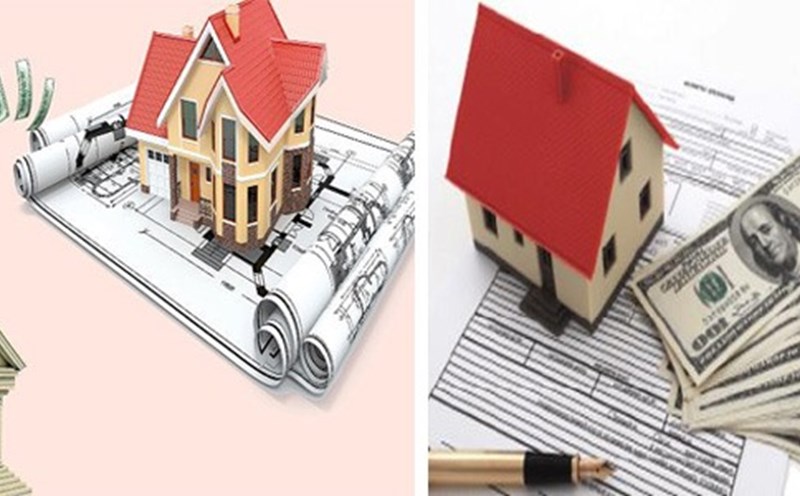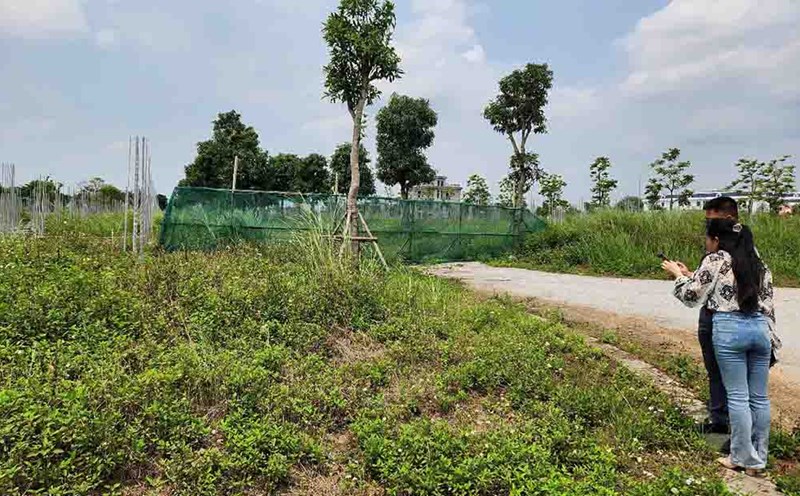The Ministry of Construction proposes that the Ministry of Finance study and propose to issue tax policies for unused houses and real estate; collect taxes on the price difference between land use fee calculation prices and real estate product sales prices of projects; collect taxes on the difference between transactions to avoid speculation and real estate price inflation.
The Ministry of Construction considers this one of the key solutions that need to be implemented in the coming time to stabilize the market.
In recent times, real estate speculation and surfing activities have been popular in many localities, especially in the land segment. The second quarter report of 2025 of the Ministry of Construction said: "At the end of the first quarter of 2025, there was a local land fever in some localities such as Bac Ninh, Phu Tho, Ninh Binh, Hung Yen, Hai Phong... Transactions during this time were mainly speculative transactions".

Faced with this situation, local authorities have issued warnings and implemented control measures. As a result, "land transfer prices have been controlled", however, "the price is equal to the land transfer list price, which increased slightly by about 3-5% compared to the first quarter of 2025".
Taxing the difference between real estate transfers is expected to help limit the situation of buying and selling repeatedly to benefit from price differences, thereby minimizing speculation and directing the market to develop more stably. At the same time, this is also considered a solution to help increase State budget revenue.
However, many opinions from investors and experts expressed concern about this proposal. One of the major problems is how to accurately determine the actual capital and cost price to calculate taxable interest, especially for items such as brokerage fees, furniture, interest... which are difficult to prove without full invoices. In addition, in cases of forced to sell assets for a short time for personal reasons such as divorce and relocation, applying high taxes can create an unfair burden.
Some experts warn that if the purpose of real estate for living, long-term investment or speculation is not clearly classified, the application of mass tax can cause secondary market congestion, indirectly affecting the primary market. There are also opinions that, before implementing, it is necessary to ensure a transparent data system and a clear and convenient tax declaration process to avoid disputes and negativity in practice.
Along with studying tax policies, the Ministry of Construction proposed that the Ministry of Finance continue to review and classify difficulties and problems related to projects to synthesize and report to the Prime Minister's Steering Committee No. 751/QD-TTg dated April 11, 2025 to resolve difficulties and problems of projects that are backlogged, including real estate projects. Coordinate with the Ministry of Construction and relevant ministries to research and implement digital transformation to connect procedures from real estate transactions, notarization, tax and land transaction registration in the electronic environment.
Currently, the tax collection policy for the difference between transactions is still in the research and consultation stage.
Previously, the Ministry of Finance had submitted a report to the National Assembly, in which it proposed calculating real estate transfer tax in the draft amendment to the Law on Personal Income Tax.
Regarding the new proposal, the Ministry of Finance proposed 2 options. Option 1, in case a database can accurately determine the purchase price and costs related to real estate transfer, calculate personal income tax from real estate transfer: Tax rate of 20% multiplied by taxable income (in the form of selling price minus total costs related to real estate transfer).
Option 2, if the purchase price and costs related to the real estate transfer cannot be determined, personal income tax is determined on the total real estate transfer price multiplied by a tax rate of 2%.
It is known that currently, personal income tax for real estate transfers is calculated at 2% on transaction value. That is, the seller must pay a tax of 2% of the total real estate value stated in the transfer contract, regardless of profit or loss.











